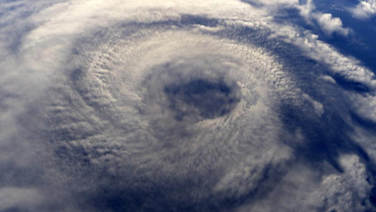 Hurricane Newton, 09/06/2016 Hurricane Newton, 09/06/2016 When planning a vacation, most people do everything in their power to avoid inclement weather, especially hurricanes. But even the best laid plans can be upset by the unexpected. We experienced this recently in Cabo San Lucas when we went from beautiful weather to full hurricane in 24 hours. Hurricane and typhoons can occur any time of year, which proves to be challenging when trying to plan a vacation. So here are some tips you can use to minimize the impact unforeseen weather can have on your vacation. Consider your travel dates and destination
You can minimize the chances of having bad weather impact your vacation. If you don't want to deal with snow or possible blizzards, don't travel to those areas that are likely to get snow during the winter months. Instead of going to New England, Canada, Scandinavian countries, etc. you might consider heading south to Florida, Hawaii, the Caribbean, or even south of the equator where the southern hemisphere is experiencing summer during our winter. If you want to avoid hurricanes, consider avoiding hurricane-prone areas (the Gulf Coast of the United States, Mexico, Hawaii, and the Caribbean) during hurricane season (June 1st through November 30th). Buy travel insurance Travel insurance does more than cover your financial investment in the event that you cancel your trip. Insurance provides additional coverages like trip interruption, trip delay, lost or delayed baggage, emergency medical, medical evacuation, and repatriation of remains. If a hurricane hits your vacation destination while you are there, you might receive benefits under trip interruption or trip delay. During our recent Cabo experience, my daughter had trip interruption (the airline cancelled her flight) and I had trip delay (my flight was so delayed that I missed my connection). All of our extra expenses were covered by travel insurance. Register your trip with the US State Department It may seem like overkill to register a simple trip to an all-inclusive resort in Mexico or the Caribbean. However, if a tourist area is decimated by a hurricane, it is helpful to the local embassies if they know in advance how many of their citizens that they need to account for after a natural disaster. I would also recommend leaving a copy of your itinerary behind with family and/or a trusted friend. Once on vacation, how to deal with a hurricane Once you are at your destination if a tropical storm or hurricane hits, here are some basic tips to follow:
After the hurricane passes As soon as you can, check in with friends/family back home to let them know you are safe. If you registered your trip with the US State Department, try to contact the local US embassy as well to let them know where you are and how you are doing. Once the storm passes, how quickly your vacation returns to normal will depend on the storm's severity and the amount of damage at your resort. In Cabo San Lucas, there was little or no damage at our resort. They were able to resume "business as usual" within 24 hours, and everyone vacationed like nothing had ever happened. Of course, had it been a much stronger storm and the resort had experienced significant damage, they may have had to relocate guests to other properties. If you experience a hurricane, or strong storm, while on vacation and it interferes with your travel plans, keep good notes and all receipts to substantiate any travel insurance claim that you may need to file once you get home. Share the knowledgeComments are closed.
|
AuthorAt Ships 'N' Trips Travel we have been providing memorable travel experiences for our clients since 2005. Categories
All
Archives
October 2023
|
Due to individual state seller of travel laws, we are currently not accepting clients that are residents of California, Florida, Hawaii or Washington state. However, we can refer you to a highly qualified agency licensed in your state. Contact us for info.
Iowa SOT #1501
Iowa SOT #1501
|
CONTACT US
330 Franklin Road, #135A Box 130 Brentwood, TN 37027 PHONE NUMBERS: Office: (615) 221-1209 Toll Free / Fax: (888) 221-1209 EMAIL: [email protected] |
INSPIRATION
|
SUBSCRIBE TO OUR NEWSLETTER
Sign Up Today!
Sign Up!
|
 RSS Feed
RSS Feed
